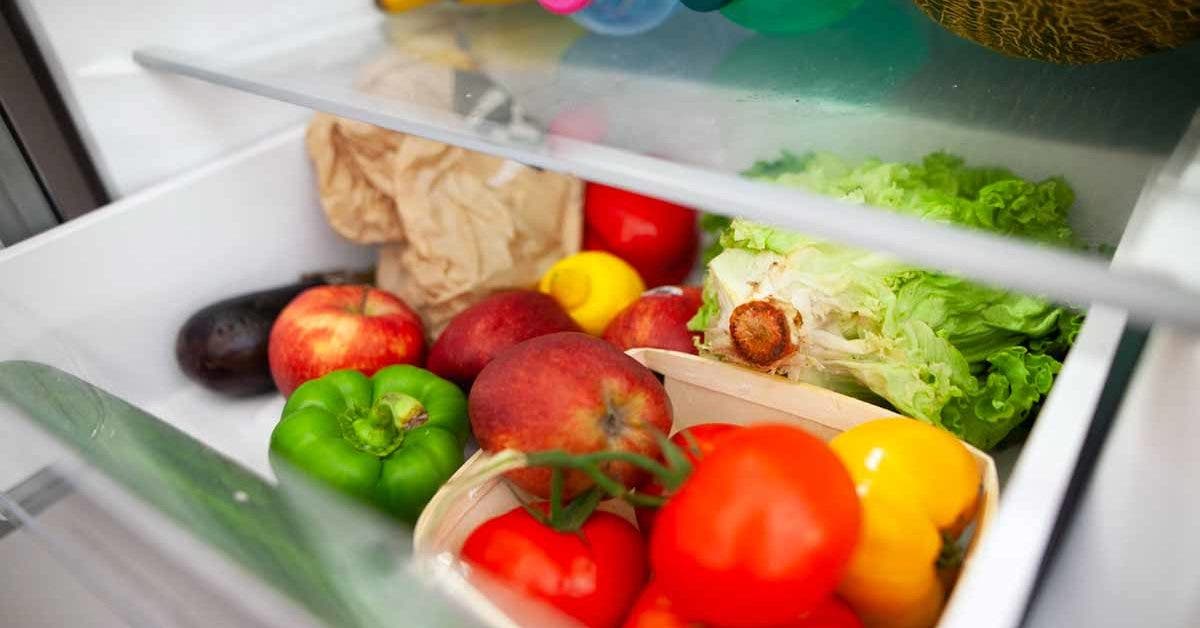When it comes to dry foods, conservation is not a problem, but when it comes to other products, the issue of expiry pushes us to be cunning and optimize our purchases. Since their appearance, fridges have revolutionized our way of life. But are all our purchases good to be kept cool? Here are the 7 fruits and vegetables that should not be kept in the fridge.
To avoid filling your fridge with products which, at the end of the week, will end up in the trash, remember to select fruits and vegetables to be stored in the fridge and those which do not require low temperatures to avoid waste.
7 fruits and vegetables you should never store in the fridge
1. Don't store your tomatoes in the fridge
Beautiful fresh tomatoes to cut into slices and arrange on your plate to accompany a burrata and basil leaves... you dream of it and that's why you keep your tomatoes cool. Well, think again! To keep your tomatoes fresh, they absolutely must not be stored in the fridge. Quite the contrary. They love heat and should be stored at room temperature. However, they must be avoided exposure to the sun so that they remain firm and juicy as desired.
2. Store basil out of the fridge
Like tomatoes and aromatic herbs, basil loves heat. Prolonged contact with a cold source will cause it to dry out prematurely. If the square footage of your kitchen allows it, store your basil on your countertop by placing it in water away from direct sunlight. Note, however, that basil should be consumed within 5 days of purchase. We are trying to slow down its drying out and not extend its lifespan to infinity.
3. Potatoes in the fridge
Potatoes should be stored in a dark, dry and cool place, but above all not in the fridge. If you don't want to alter the taste of the potato by turning the starch into sugar more quickly, avoid refrigerated places. After buying them, take the time to clean your potatoes if they are still wrapped in soil residue and place them in a place such as a cupboard out of direct sunlight. Be sure, however, to keep them away from heat sources such as the oven or radiator.
4. No garlic in the fridge!
Garlic is also a food that should not be stored in the fridge. If so, you will notice that a few days after its release, it will begin to germinate. This is not the goal since its bitterness will have an impact on the taste of your dishes.
To preserve your garlic, be sure to leave it intact, that is to say that the head must not be broken. Otherwise, you will have a window of ten days to consume it. Garlic should be placed in a dry place such as a pantry, away from moisture and direct sunlight, preferably near the ground to keep it cool.
5. For crunchy onions, avoid the fridge
Onions in the fridge? Big rookie mistake! Cooling the onions will only help soften its texture. Like garlic or potatoes, onions need to be stored in a dry, dark place. But, be careful not to place it near potatoes that release moisture.
6. For apples the way we like them, avoid the fridge
Fresh apples should not enter your fridge if you intend to consume them within two weeks of picking them. At room temperature, their flesh is more pleasant and juicier. But if your children are not really fans of plain apples, you can put them in the fridge to extend their shelf life.
7. As soon as the weather turns nice, watermelon and melon make a comeback, but not in your fridge.
Watermelons and melons should be stored at room temperature. The nutritional value of these fruits is significantly higher when stored at room temperature than at low temperature. According to a study conducted by researchers at the USDA Agricultural Research Service of Lane, Oklahoma on the preservation of watermelons and melons, fruits stored at room temperature experienced an increase in carotenoid levels of 11% to 40% compared to those stored at low temperatures which had a very small increase in levels of carotenoids, with antioxidant properties.
Storing food is not something to be taken lightly. Your health depends on it. Remember to read the labels on processed products, smell the food before eating it and clean your fridge of dirt accumulated over the days.


